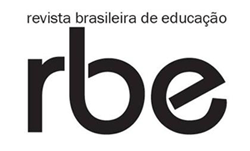The article contributes to understanding how school curriculums are determined in Brazil, with an emphasis on the public sector. Assuming that the weak autonomy of the educational field in Brazil allows the intervention of forces external to it, the text identifies two market forces - the economic and the ideological - which are important in understanding the heteronomy of the educational field. The ideological element encompasses the instrumentalization of educational institutions to inculcate values and standards of behavior defined as legitimate by private entities, as well as religions and parties. The economic element includes both the sale of goods to be consumed by educational institutions (supply generating demand), as well as the market reserve for professionals, companies and non-governmental organizations. The author recognizes that both elements are useful for analytic purposes, but warns against their reification, given that the concrete processes do not make this distinction. Thus, the sale of goods, the reserve market and socialization projects shape school curriculum as much or more decisively than debates over pedagogical concepts. The article concludes that the "invasion" of the educational field by markets impedes the expansion of their autonomy, which, in turn, facilitates the "invasion," generating a vicious process of reciprocal action.
educational policy; ideology; curricular market; privatization
